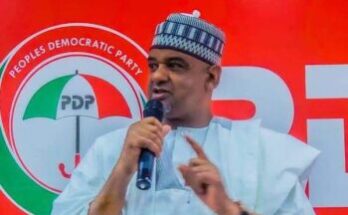No doubt, Nigeria has all the potentials needed for any country to attain greatness. However, this dream can never be attained on a platter of gold. We have to work hard for it. This formed was the line of argument put forward by Professor Ayodeji Olukoju, the Vice-Chancellor of the Caleb University, Lagos, while delivered the last Convocation Lecture of the Federal University of Agriculture, Abeokuta (FUNAAB).
According to the professor, his topic – which is certainly worth sharing – was inspired by the implication of two milestones in recent history – the Centenary in January this year signifying the amalgamation of the protectorates of Northern and Southern Nigeria to form the country, Nigeria, as well as the 90th birthday of Singapore’s founding leader, Lee Kuan Yew – which were milestones were of great significance when reflecting on the contrasting fortunes of both countries in the second half of the twentieth century but the lack of leadership occasioned by economic nationalism in Nigeria contrast sharply with the role of the two elements in Singapore, that jumped from Third to First World status in just one generation.
Titled, “Leadership, Economic Nationalism and Development: Nigeria and the Challenge from the Global South”, Professor Olukoju, a historian and Fellow, Nigerian Academy of Letters, noted that causation and chronology were critical to the enterprise of the professional historian. He defined development as a combination of political, economic and social changes producing sustained economic growth, higher standards of living, fair distribution of wealth, political, social and economic freedoms, inclusiveness and measurable satisfaction while economic nationalism is an orientation that encourages keeping of jobs and capital at home for the progress and development of that country. According to him, historians usually prefer a cocktail of causes to a single, preponderant explanation when accounting for certain development.
Professor Olukoju stated that the central argument advanced in his presentation was that leadership is propelled through economic nationalism. He noted that leadership unveils a clear vision to give direction to desperate goals, devices strategies for achieving them, mobilises followers, manages the dynamics involved in the process of changes, engages in problem-solving and ensures continuity or sustainability through a succession plan. Hence, leaders are naturally responsible for generating the vision to meet a desire for change, raising awareness and mobilising followers, communicating the vision, intention and taking personal responsibility through exemplary leadership.
In the Global South, economic instances of economies of the government of Meiji of Japan which, was supported from the 1860s on national shipping lives until they successfully drove competing Western lives out of regional shipping. In colonial India, blatant economic nationalism through the combination of Boycott with Swadeshi was employed against British business in protest against the partition of Bengal in 1905. British goods were specifically targeted and boycotted as a weapon of economic resistance while local production was undertaken to provide an alternative to the boycotted goods.
The famous Indian nationalist leader, Mahatma Gandhi, exemplified this policy by jettisoning his law profession’s Western dress for the peasant’s cotton loin cloth, Dhotic. In turn, the Swadeshi policy boosted local industry and employment, while its combination with boycott devastated British economic interests.
In the colonial era in Nigeria, the British deployed economic nationalism in their own interest through their European and Japanese competitors by using import quotas to dislodge rising Japanese textile imports while during the World War II, they adopted the “Buy British, Sell Foreign” policy, which ensured that British exports enjoyed monopoly in Nigerian markets while the sales of local produce exports specifically to foreign markets earned hard currency and stabilized balance of payments.
He regretted that globalisation had tended to weaken the appeal and efficacy of economic nationalisation as a force in national economic development. Yet, it has failed to erase the nation as a unit or framework of analysis of inter-state relations.
This explains the continuing persistence and relevance of economic nationalism and that economic nationalism even in the age of globalisation and free trade agreements must be practiced. If the United States of America still subsidises the agricultural sector, there is nothing stopping Nigeria from giving judicious, properly conceived and administered state help to national industry, he argued.
Unlike nations with great drive for economic nationalisation, Professor Olukoju observed that the reverse is the case with Nigeria as “no leader since the First Republic, has articulated a vision of Nigeria’s greatness and carried it through.
To be concluded



